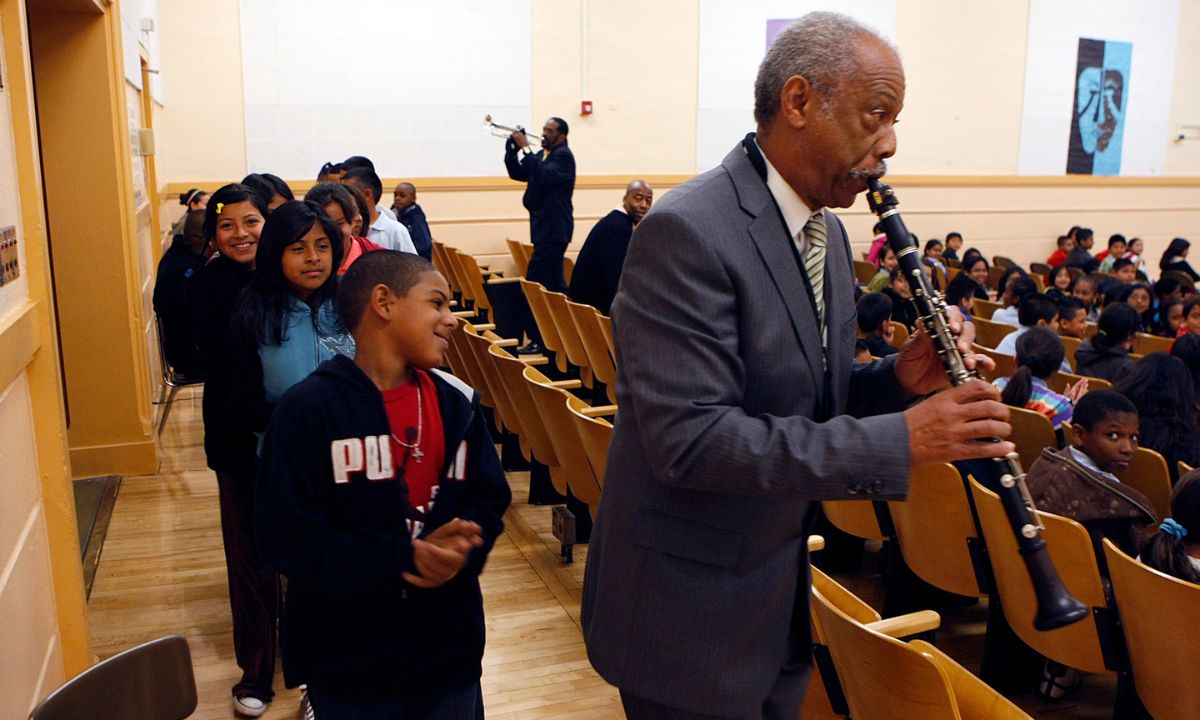Why Educators Must Defend DEI in the Face of Political Backlash
Larson: Diversity, equity and inclusion initiatives are not a threat to meritocracy but rather essential mechanisms for achieving it.

Get stories like this delivered straight to your inbox. Sign up for The 74 Newsletter
In the wake of George Floyd’s murder in 2020, diversity, equity, and inclusion (DEI) initiatives expanded as organizations pledged to support historically marginalized groups. Now, we are witnessing a significant backlash against these efforts, with DEI facing political and ideological attacks.
As a result, corporations and institutions are rescinding their DEI commitments, and negative consequences are emerging. For instance, enrollment of Black and Hispanic students at selective colleges declined after the Supreme Court struck down affirmative action.
Beyond the courts, the White House has launched its own anti-DEI initiatives, such as the Ending Illegal Discrimination and Restoring Merit-Based Opportunity executive order on January 21 — which arrived just as the nation was honoring Martin Luther King Jr. The order asserts that DEI policies “deny, discredit, and undermine the traditional American values of hard work, excellence, and individual achievement in favor of an unlawful, corrosive, and pernicious identity-based spoils system.”
As someone who has studied moral philosophy and psychology and worked on DEI initiatives throughout my career in education, I find these assumptions disturbing. Meritocracy is an ideal worth striving for, but the playing field is not level in many settings, particularly in education.
Education is rife with systemic inequities that disproportionately and predictably disadvantage students based on race, gender, socioeconomic status, disability, and language. These barriers hinder fair access to resources and opportunities. For example, schools in economically disadvantaged communities, especially those serving students of color, often struggle to attract and retain experienced, highly qualified educators.
When I worked at a charter school in Indianapolis serving multilingual students and students of color, the average teacher tenure was just three years, meaning most were novices. In contrast, when I was an administrator in a highly affluent Chicago suburb, the teaching staff was a mix of experienced and new educators, most with advanced degrees and credentials.
The disparities were staggering. Research consistently shows that teacher quality strongly influences student achievement. With high teacher turnover, it is nearly impossible to make strong gains, because the faculty and staff are unable to build the critical level of expertise needed for achieving excellence. Without DEI initiatives, how are schools supposed to address these persistent inequities?
People define DEI in various ways. In my work, DEI initiatives focus on analyzing, studying, and addressing inequities; promoting and valuing diversity; and creating environments that foster inclusion and belonging. For example, my team and I applied DEI frameworks to explore ways to increase the success of historically marginalized groups in STEM courses and career pathways. A review of the research showed that one barrier for many students was a lack of connections to STEM professionals.
A school questionnaire revealed that most of our students did not personally know a scientist or understand what an engineer does. In response, we developed a STEM strategic plan that intentionally incorporated mentoring opportunities with scientists and engineers who identified as female or as people of color. In addition, we expanded access to assistive technologies for students who might otherwise struggle to fully engage with STEM content. Tools such as language translators, closed captioning, and text readers improved accessibility for multilingual learners and students receiving special education services.
At its core, DEI is about fostering a fair and just society. Eliminating DEI programs allows deeply flawed systems to persist. In education, women and people of color remain underrepresented in leadership roles. The School Superintendents Association’s 2020 Decennial Study found that the typical superintendent is male and white. At the time of the study, only 27% of superintendents were women.
A 2023 study from the University of Texas at Austin confirmed similar numbers in Texas, despite women comprising 76% of the teaching workforce. This suggests that the path to leadership is not equally accessible to women, even as they are held to the same credentialing and training requirements as men. DEI initiatives help identify and address these disparities.
The same study found racial disparities in leadership, as well. While Hispanic students made up 53% of Texas’s student population, 79% of school superintendents were white. Research has shown that students of color benefit from educators who share their identities, suggesting that increasing Hispanic representation in educational leadership could better serve Texas youth. Yet, Trump’s recent executive order prohibits considering race in hiring decisions.
Opponents have irresponsibly weaponized the term “DEI hire” to argue that marginalized individuals who attain leadership positions are unqualified, reinforcing harmful stereotypes and deepening inequities. This perspective assumes that white superintendents dominate leadership positions solely due to merit, an argument that dangerously echoes long-debunked racial hierarchies of intelligence.
True DEI is not about being anti-white or indoctrinating students with a liberal ideology. It is about ensuring that all individuals, especially the historically marginalized, have equitable access to success. The current backlash against DEI risks cementing barriers that have persisted for generations, leaving educators with fewer tools to address disparities.
At its core, education is meant to be a great equalizer. But without intentional efforts to level the playing field, it often reinforces existing inequalities. DEI is not a threat to meritocracy – it is an essential mechanism for achieving it. As educators, we have a moral obligation to uphold these principles, ensuring that fairness and justice remain foundational in our schools and society.
Get stories like these delivered straight to your inbox. Sign up for The 74 Newsletter

;)